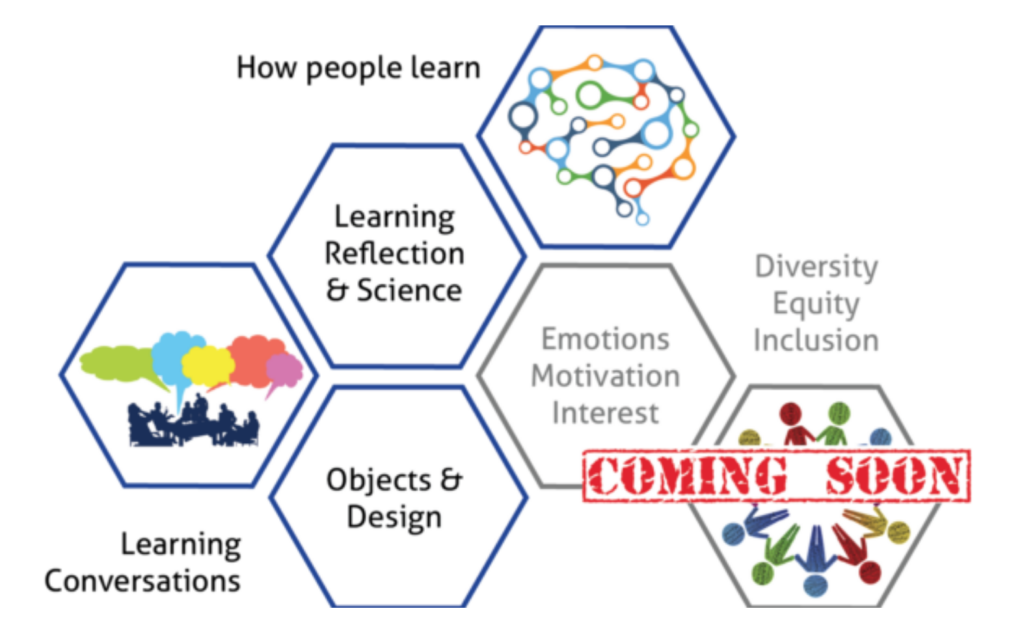
Recently, I held up my clock to a mirror. It was time for reflection–
I am sorry; I couldn’t help myself! I have often been thinking about the role of reflection in training and staff development. This winter, I completed a professional learning program called Reflecting on Practice(RoP).* This program aims to allow informal educators to dive into the latest science on learning within a cohort model. The RoP project’s goals are to put research ideas into practice, transform its participants, and promote a culture of learning. This train-the-trainer model allows the program to reach millions of people in out-of-school settings like botanical gardens, museums, national parks, nature centers, and zoos every year. I found this program to be transformative because it fully embraced the social aspect of learning and professional development. The cohort model allows for many opportunities to interact in small groups or one-on-one with peers. The framework that they present is social as well. Educators are encouraged to enable peers to observe them teaching or video record their teaching and give that to peers. We are social beings, and after completing this program, I feel that the social aspect of training needs to be built into it, in some form or another, to make training truly effective.
I see four aspects of an educator’s practice that are demonstrably changed by the Reflecting on Practice program:
- How educators interact with learners (behavior)
- Educators’ thoughtfulness about their actions and understanding of research (thinking)
- How educators talk about their practice (language)
- How educators engage in their work inside and outside institutions (participation)
I would highly recommend this program to any of my peers, and I am grateful for the opportunity to have participated. Since this is a complex and intensive program, I will not go into detail about what participants do. The three foundational pieces of the program are core content building, video reflection, and advanced study in an area of the participant’s choice. If you are interested in learning more about the RoP program, you can visit their website.
The main takeaway for me in completing this program is the power of social-based learning, and I look forward to applying this concept when developing training or learning opportunities.
*Reflecting on Practice is partnered with the Association of Zoos and Aquariums, the National Association for Interpretation, and the Association of Science-Technology Centers.
Want to know more about Empowered Development Consulting? Reach out to me, Meghan Schiedel, and find out how Empowered Development Consulting can help you.
